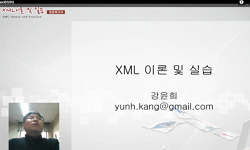The purpose of this paper is to explain the parsing procedures of a Korean-English e-dictionary which has no clear internal structure. We analyze the structure of the e-dictiornay, and then select pieces of information which can be handled automatical...
http://chineseinput.net/에서 pinyin(병음)방식으로 중국어를 변환할 수 있습니다.
변환된 중국어를 복사하여 사용하시면 됩니다.
- 中文 을 입력하시려면 zhongwen을 입력하시고 space를누르시면됩니다.
- 北京 을 입력하시려면 beijing을 입력하시고 space를 누르시면 됩니다.
https://www.riss.kr/link?id=A99554425
- 저자
- 발행기관
- 학술지명
- 권호사항
-
발행연도
2003
-
작성언어
-
- 주제어
-
KDC
900
-
등재정보
KCI등재
-
자료형태
학술저널
-
수록면
357-382(26쪽)
-
KCI 피인용횟수
1
- 제공처
-
0
상세조회 -
0
다운로드
부가정보
다국어 초록 (Multilingual Abstract)
The purpose of this paper is to explain the parsing procedures of a Korean-English e-dictionary which has no clear internal structure. We analyze the structure of the e-dictiornay, and then select pieces of information which can be handled automatically. English trans- lations, English examples, and English idioms are extracted auto- matically. We label each kind of information with SGML tags such as <se> and <ex>. Using these SGML tags, we automatically extract relevant lexical information. With the help of these procedures, we will construct a multi-lingual lexical database semi-automatically. The methods used for parsing a Korean-English e-dictionary can be applied to Korean-Japanese, Japanese-Korean, English-Chinese, and Chinese-English e-dictionaries.
동일학술지(권/호) 다른 논문
-
- 고려대학교 민족문화연구원
- 박종우 ( Park Jong U )
- 2003
- KCI등재
-
A Philosophical Study of Toegye`s Political Thoughts in Terms of ye(禮), Yechi(禮治)
- 고려대학교 민족문화연구원
- 유권종 ( Yoo Kwon Jong )
- 2003
- KCI등재
-
- 고려대학교 민족문화연구원
- 김향은 ( Kim Hyang Eun )
- 2003
- KCI등재
-
박제상 이야기의 수용 양상과 그 의미 -인물형상을 중심으로-
- 고려대학교 민족문화연구원
- 엄기영 ( Eom Gi Yeong )
- 2003
- KCI등재
분석정보
인용정보 인용지수 설명보기
학술지 이력
| 연월일 | 이력구분 | 이력상세 | 등재구분 |
|---|---|---|---|
| 2026 | 평가예정 | 재인증평가 신청대상 (재인증) | |
| 2020-01-01 | 평가 | 등재학술지 유지 (재인증) |  |
| 2017-01-01 | 평가 | 등재학술지 유지 (계속평가) |  |
| 2015-03-17 | 학술지명변경 | 외국어명 : 미등록 -> Korean Cultural Studies |  |
| 2013-01-01 | 평가 | 등재 1차 FAIL (등재유지) |  |
| 2010-01-01 | 평가 | 등재학술지 유지 (등재유지) |  |
| 2009-06-18 | 학회명변경 | 영문명 : Institute of Korean Culture -> Research Institute of Korean Studies |  |
| 2008-01-01 | 평가 | 등재학술지 유지 (등재유지) |  |
| 2005-10-18 | 학술지명변경 | 한글명 : 민족문화연구 29호 -> 민족문화연구 |  |
| 2005-01-01 | 평가 | 등재학술지 선정 (등재후보2차) |  |
| 2004-01-01 | 평가 | 등재후보 1차 PASS (등재후보1차) |  |
| 2002-01-01 | 평가 | 등재후보학술지 선정 (신규평가) |  |
학술지 인용정보
| 기준연도 | WOS-KCI 통합IF(2년) | KCIF(2년) | KCIF(3년) |
|---|---|---|---|
| 2016 | 0.77 | 0.77 | 0.7 |
| KCIF(4년) | KCIF(5년) | 중심성지수(3년) | 즉시성지수 |
| 0.71 | 0.7 | 1.385 | 0.15 |




 KCI
KCI KISS
KISS





